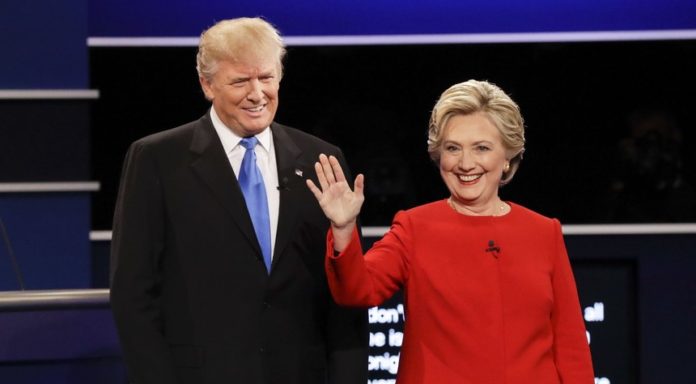A lawsuit was filed by former President Donald Trump, against Hillary Clinton and the FBI, regarding their actions during the 2016 presidential campaign and the subsequent Russia investigation.
CNN:
Donald Middlebrooks, a US District Judge, dismissed Thursday’s lawsuit. He stated that most of the Plaintiff’s claims are not only unsupported by law, but also clearly precluded by binding precedent.
Middlebrooks was a Bill Clinton appointee who wrote that Trump’s lawsuit lacks legal support and substance.
Middlebrooks of Florida’s Southern District stated that Trump’s “audacious” interpretations of law had “glaring difficulties” and that many of Trump’s specific facts were either “implausible (or unsupported).
Middlebrooks stated, “Trump is not seeking redress for any type of legal harm.”
Ex-US officials and Democratic operatives were charged with conspiring against Trump, inciting a hoax regarding the Russia investigation, and were included in the lawsuit. He requested $24 Million in damages.
The entire 65-page Order can be found here. Let’s try to distill it a little:
Plaintiff’s Amended Complaint is 193 pages in length, with 819 numbered paragraphs. It contains 14 counts, names 31 defendants, 10 “John Does” described as fictitious and unknown persons, and 10 “ABC Corporations” identified as fictitious and unknown entities. Plaintiff’s Amended Complaint is neither short nor plain, and it certainly does not establish that Plaintiff is entitled to any relief.
The Judge then analyzes and rules on the following points:
- The fictitious individual and corporate defendants are not described with sufficient particularity and thus are dismissed without prejudice.
- The Court lacks subject matter jurisdiction over Plaintiff’s claims against the United States as Plaintiff has not exhausted his remedies under the Federal Tort Claims Act. Thus, the claims against the United States are dismissed without prejudice.
- The Court lacks personal jurisdiction over Defendants Charles Halliday Dolan Jr., Rodney Joffe, and Orbis Business Intelligence, Ltd., under the Florida long-arm statute, thus the claims against them are dismissed with prejudice.
- Plaintiff’s RICO and RICO Conspiracy claims are barred by the statute of limitations (four years from when the injury was or should have been discovered). The Judge notes that President Trump’s own tweets demonstrate his awareness of the purported claims by October 2017 at the latest, thus beyond the four-year window and no tolling exceptions apply.
- The RICO and RICO conspiracy claims also fail on the merits. The three predicate acts on which the claims are based — obstruction of justice, theft of trade secrets, and wire fraud — are not sufficiently pled or supported. Further, Plaintiff lacks RICO standing.
- The claims for injurious falsehood and conspiracy to commit injurious falsehood also are barred by the applicable statutes of limitations, with the exception of statements made by Hillary Clinton and Adam Schiff. The Court concludes, however, that the Clinton and Schiff statements do not satisfy the required elements of an injurious falsehood claim
- The claims for malicious prosecution and conspiracy to commit malicious prosecution (against Deputy AG Rod Rosenstein, former FBI Director James Comey, former Deputy FBI Director Andrew McCabe, FBI lawyers Kevin Clinesmith and Lisa Page, DOJ official Bruce Ohr and his wife, Nellie Ohr, and FBI agent Peter Strzok) fail primarily because Plaintiff was never prosecuted. Those counts are dismissed with prejudice.
- The Computer Fraud and Abuse Act claim also is beyond the statute of limitations and, per the Court, fails to state a substantive claim for relief.
- The Theft of Trade Secrets claim is likewise time-barred, as is the claim under the Stored Communications Act.
- Further, the Court that any further attempts to amend the Complaint would be futile so dismisses the merits claims with prejudice.
In sum, the Amended Complaint was dismissed with prejudice (i.e., a final disposition) as to the non-federal defendants, and without prejudice as to the United States.
It is still to be seen if Trump will find an audience.
Update: President Trump’s lawyers have indicated that they intend to appeal the decision.
Trump’s legal team will immediately appeal the decision, Alina Habba, his lawyer, said Friday morning. Habba stated that the Middlebrook order was “rife with erroneous law application” and ignored “numerous government investigations which support Trump’s conspiracy claims.”










